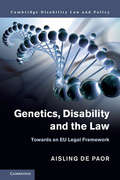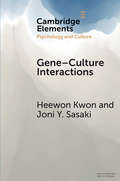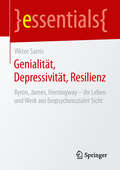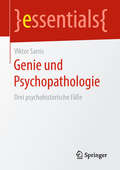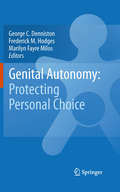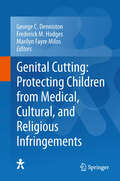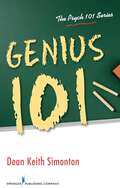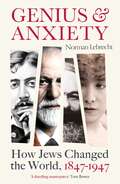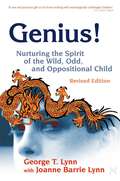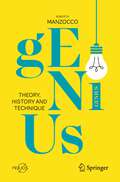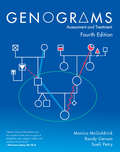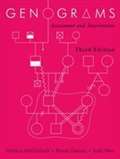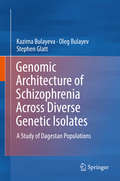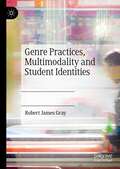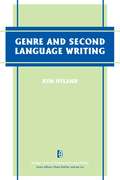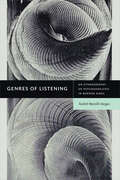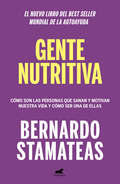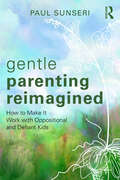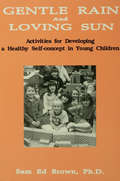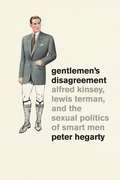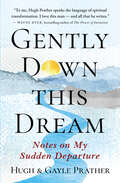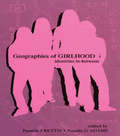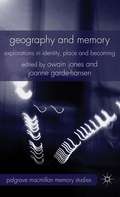- Table View
- List View
Genetics, Disability and the Law: Towards an EU Legal Framework (Cambridge Disability Law and Policy Series)
by Aisling De PaorWhile advances in science and technology bring many advantages, we must not ignore the harm that they can cause. Rapid changes in genetic testing are a prime example, and indicators can now help to detect, address and treat diseases. However, in this new study, Aisling de Paor examines how genetic testing is also being used for non-medical reasons, for example for work opportunities and insurance coverage. Genetics, Disability and the Law is the first book of its kind to substantively consider an EU-level response to the use of genetic information. de Paor discusses how to help genetic and scientific research to evolve and grow, how to enhance public confidence in research, and how to control it so that it recognises our values and fundamental human rights. An understudied but vitally important topic, de Paor's work provides a valuable and timely contribution to the field of disability rights. Presents a practical consideration of an EU-level legislative response to controlling the use and misuse of genetic information, appealing to those involved in the regulation of this field Takes a human rights and disability approach to considering the regulation of genetic information, which will interest scholars and policymakers from a variety of disciplines, in particular because it considers the intersection of disability and genetics Considers normative and non-normative attitudes to the regulation of genetic information, giving readers a new and varied insight
Gene–Culture Interactions: Toward an Explanatory Framework (Elements in Psychology and Culture)
by Joni Y. Sasaki Heewon KwonExamining the interconnections between genes and culture is crucial for a more complete understanding of psychological processes. Genetic predispositions may predict different outcomes depending on one's cultural context, and culture may predict different outcomes depending on genetic predispositions - that is, genes and culture interact. Less is understood, however, about how genes and culture interact, or the psychological mechanisms through which gene–culture interactions occur. In this Element, Joni Y. Sasaki and Heewon Kwon review key findings and theories in gene–culture interaction research. They then go on to discuss current issues and future directions in gene–culture research that may illuminate the path toward an explanatory framework.
Genialität, Depressivität, Resilienz: Byron, James, Hemingway – ihr Leben und Werk aus biopsychosozialer Sicht
by Viktor SarrisDieses essential behandelt die psychischen Erkrankungen von Lord George Byron, William James und Ernest Hemingway – drei genialen Persönlichkeiten der Poesie, Wissenschaft und Literatur. Es wird untersucht, wie diese Genies mit ihrer schweren Depressivität zeit ihres Lebens umgegangen sind. Dabei interessiert besonders die Frage, welche psychischen Widerstände sie gegen ihre Depressionen mobilisieren konnten (Resilienz). Ihr persönliches Schicksal wird jeweils unter einem biopsychosozialen Blickwinkel der Möglichkeiten und Grenzen ihrer kognitiv-emotionalen Abwehrkräfte behandelt. Damit wird auch die Frage berührt, welche Bedeutung die Resilienz für die Kontrolle von Suizidalität hat.
Genie und Psychopathologie: Drei psychohistorische Fälle (essentials)
by Viktor SarrisDieses essential behandelt die psychischen Erkrankungen von Robert Schumann, Vincent van Gogh und Virginia Woolf - diesen Genialen der Musik, Malerei und Literatur - aus psychohistorischer Sicht. Es stellt die Frage, wie diese drei gro#65533;en Pers#65533;nlichkeiten mit ihren schweren Depressionen umgegangen sind. Ihr Schicksal ist neben der klinisch-medizinischen Seite auch unter einem psychologischen und anthropologischen Blickwinkel von Interesse. Das Thema wird im Rahmen eines biopsychosozialen Modells im Zusammenhang mit der sogenannten Mad-Genius-Hypothese behandelt. Dabei steht die zu beachtende Problematik einer Stigmatisierung und gesellschaftlichen Ausgrenzung von Genialen und psychisch Labilen bzw. Kranken ebenfalls im Raum.
Genital Autonomy:
by Frederick M. Hodges Marilyn Fayre Milos George C. DennistonCircumcision affects 15.3 million children and young adults annually. In terms of gender, 13.3 million boys and 2 million girls are subjected to the involuntary removal of part or all of their external sexual organs every year. The problem of female circumcision has been addressed on an international level, but male circumcision remains a controversial subject that many academics have been reluctant to examine. Circumcision is tolerated today because it has been practiced for millennia by a small but vocal minority of religious and ethnic groups, however, when the practice is examined through the lens of modern legal, ethical, and human rights advancements, no place remains in civilized society for this body-altering ritual. In Genital Autonomy: Protecting Personal Choice, international experts address various types of genital modifications, the impact of these harmful traditional practices on the child, on human rights, and on the development of the concept of bodily integrity. The papers presented in this volume address these topics from a variety of angles. They question and dissects the true motivations of the doctors, witch doctors, and "holy men" who promote and profit from circumcision.
Genital Cutting: Protecting Children from Medical, Cultural, and Religious Infringements
by Frederick M. Hodges Marilyn Fayre Milos George C. DennistonThis volume contains the proceedings of the 10th International Symposium on Circumcision, Genital Integrity, and Human Rights. Authors are international experts in their fields, and the book contains the most up-to-date information on the issue of genital cutting of infants and children from medical, legal, bioethical, and human rights perspectives.
Genitori Single e Loro Figli: Le Buone Notizie Che Nessuno Mai Ti Dice
by Bella Depaulo Valentina StaffieriGenitori Single e Loro Figli: Le Buone Notizie che Nessuno Mai Ti Dice di Bella DePaulo Un libro di buone notizie sui figli di genitori single, basato sulla ricerca scientifica "Genitori Single e Loro Figli" è una raccolta di articoli che fanno cadere i miti, che accrescono la consapevolezza che sfida tutti gli stereotipi che diminuiscono e degradano le famiglie monoparentali. Attingendo alle ricerche scientifiche, la Dr.ssa Bella DePaulo dimostra che le fosche previsioni sul destino dei figli di genitori single sono grossolanamente esagerate o semplicemente sbagliate. Inoltre, ci sono modi in cui i figli di genitori single se la cavano meglio di chiunque altro. Le Buone Notizie che Nessuno Mai Ti Dice. La professoressa DePaulo è stata descritta dalla rivista Atlantic come "la più importante pensatrice e scrittrice americana sull'esperienza del single." Questo libro contiene più di una dozzina dei suoi scritti più influenti sui genitori single e i loro figli, oltre a diversi contributi di ospiti. Gli articoli di Bella DePaulo originariamente sono apparsi nel suo popolare blog "Living Single" in Psychology Today e il suo blog "Single at Heart" a PsychCentral, così come sul Guardian.
Genius 101 (Springer Ser.)
by Dean Keith SimontonGenius," contrary to common belief, is not strictly a matter of intelligence. Intellect, personality, creativity, even serendipity play a significant role in molding a genius. So, what does it mean to be a genius? Genius 101 examines the many definitions of "genius," and the multiple domains in which it appears, including art, science, music, business, literature, and the media. Dr. Simonton introduces the study of genius theory and the research supporting it, using non-scientific, accessible language-fit for a non-genius.
Genius and Anxiety: How Jews Changed the World, 1847–1947
by Norman LebrechtMarx, Freud, Proust, Einstein, Bernhardt and Kafka. Between the middle of the nineteenth and twentieth centuries a few dozen men and women changed the way we see the world. But many have vanished from our collective memory despite their enduring importance in our daily lives. Without Karl Landsteiner, for instance, there would be no blood transfusions or major surgery. Without Paul Ehrlich no chemotherapy. Without Siegfried Marcus no motor car. Without Rosalind Franklin genetic science would look very different. Without Fritz Haber there would not be enough food to sustain life on earth. These visionaries all have something in common – their Jewish origins and a gift for thinking outside the box. In 1847 the Jewish people made up less than 0.25% of the world&’s population, and yet they saw what others could not. How?
Genius!: Nurturing the Spirit of the Wild, Odd, and Oppositional Child – Revised Edition
by George LynnGenius! is an inspiring guide to nurturing the remarkable abilities of "attention different" (AD) children diagnosed with conditions such as autism, Asperger Syndrome, AD/HD, bipolar disorder, or Tourette Syndrome (TS). Drawing on their experiences with their own son, who has TS, George T. Lynn and Joanne Barrie Lynn offer a positive parenting philosophy and successful strategies for creating an affirmative social and emotional environment that unlocks the potential genius in 'neurologically eccentric' children. The authors emphasize the importance of identifying the signs of giftedness, providing the necessary care and mentoring, and using medication with due consideration of its benefits and limitations. They also acknowledge the need to confront the `dark side' of atypical neurology - obsessiveness, self-centredness and hyperactivity - and offer helpful advice on ensuring parents' and carers' own emotional, spiritual, and physical well-being. This book will be an essential tool for parents and carers to help bring out the best in their AD child and help him explore his full potential in life. This revised edition also includes additional material on working with older age groups.
Genius: Theory, History and Technique (Springer Praxis Books)
by Roberto ManzoccoGenius is a fascinating topic. Everyone has an opinion on it, but not a lot of clarity. Much has been written on the subject - biographies, autobiographies, technical books, popular science books, and practical manuals - but genius in all of its dimensions has yet to be addressed. This book seeks to remedy that. What follows is a work of significant breadth that hopes to facilitate a nuanced popular understanding of the definition of genius, examining all of the main theories and approaches regarding the nature and origin of brilliance, the cognitive path that geniuses follow, and the difference that exists between “geniuses” on one side and “normal people” on the other. Pragmatic indications surrounding this issue are also examined, regarding such questions as: is it possible to become a genius or is genius innate? If it is possible, what is the path – no doubt long and difficult – that one must take? Is there a method for becoming a genius that can be taught and learned? This book will appeal to anyone who has ever contemplated great ideas and works and wondered how they came into being.
Genocide and Mass Violence
by Devon E. Hinton Alexander L. HintonWhat are the legacies of genocide and mass violence for individuals and the social worlds in which they live, and what are the local processes of recovery? Genocide and Mass Violence aims to examine, from a cross-cultural perspective, the effects of mass trauma on multiple levels of a group or society and the recovery processes and sources of resilience. How do particular individuals recall the trauma? How do ongoing reconciliation processes and collective representations of the trauma impact the group? How does the trauma persist in 'symptoms'? How are the effects of trauma transmitted across generations in memories, rituals, symptoms, and interpersonal processes? What are local healing resources that aid recovery? To address these issues, this book brings into conversation psychological and medical anthropologists, psychiatrists, psychologists and historians. The theoretical implications of the chapters are examined in detail using several analytic frameworks.
Genograms: Assessment And Treatment
by Randy Gerson Sueli Petry Monica McGoldrickThe latest edition of this definitive book in the field of family therapy—the first update in ten years. Widely used by family therapists— and by health care professionals in general—the genogram is a graphic way of organizing the mass of information gathered during a family assessment. This visual representation allows the practitioner to find patterns in the family system for more targeted treatment. Now in its fourth edition, Genograms has been fully updated by renowned therapist Monica McGoldrick. Expanded with four-color images throughout, additional material explaining the use of genograms with siblings and couples, and a thorough updating to essential concepts, this edition provides a fascinating view into the richness of family dynamics. Informative, comprehensive, and beautifully written and illustrated, this book helps bring to life principles of family system theory and systemic interviewing, as well as walk readers through the basics of constructing a genogram, doing a genogram interview, and interpreting the results.
Genograms: Assessment and Intervention (3rd edition)
by Monica Mcgoldrick Randy Gerson Sueli PetryWidely used by both family therapists and health care professionals, the genogram is a graphic way of organizing the mass of information gathered during a family assessment and finding patterns in the family system for more targeted treatment. McGoldrick (director, Multicultural Family Institute) explains how to construct a genogram, do a genogram interview, and interpret the results. Genograms of famous families such as the Kennedys, the Fondas, the Freuds, and the Jungs, bring the text to life and help elucidate the principles of family systems theory and systemic interviewing, which form the basis of genogram work. This third edition is updated and expanded. It includes a new color insert and new material on the clinical applications of genograms.
Genomic Architecture of Schizophrenia Across Diverse Genetic Isolates
by Kazima Bulayeva Oleg Bulayev Stephen GlattThis book presents a long-term study in genetic isolates of indigenous small ethnics of Dagestan, located in the North-East part of Caucasus in Russia. Dagestan is characterized by extreme cultural and linguistic differences in a small geographic area and contains 26 indigenous ethnic groups. According to archeological data these indigenous highland ethnics have been living in the same area for more than ten thousand years. Our long-term population-genetic study of Dagestan indigenous ethnic groups indicates their close relation to each other and suggests that they evolved from one common ancestral meta-population . Dagestan has an extremely high genetic diversity between ethnic populations and a low genetic diversity within them. Such genetic isolates are exceptional resources for the detection of susceptibility genes for complex diseases because of the reduction in genetic and clinical heterogeneity. The founder effect and gene drift in these primary isolates may have caused aggregation of specific haplotypes with limited numbers of pathogenic alleles and loci in some isolates relative to others. The book presents a study in four ethnically and demographically diverse genetic isolates with aggregation of schizophrenia that we ascertained within our Dagestan Genetic Heritage Research Project. The results obtained support the notion that mapping genes of any complex disease (e. g. , schizophrenia) in demographically older genetic isolates may be more time and cost effective due to their high clinical and genetic homogeneity, in comparison with demographically younger isolates, especially with genetically heterogeneous outbred populations.
Genre Practices, Multimodality and Student Identities
by Robert James GrayThis book offers a novel framework for describing and understanding student identity via the central concept of "genre practices", developed through an empirical focus on multimodality within the genre of English as a medium of instruction (EMI) undergraduate presentations. The author draws on interviews with undergraduate psychology students and recordings of their presentations to argue that by engaging in the multimodal practices of classroom presentations, presenters (re)produce both the genre and their identities as students. The resulting theory of student identity is widely applicable to tertiary settings, and the methodology described is applicable to the study of practices and identity in a range of other classroom genres. The book will therefore be of interest not only to researchers in EMI and TESOL settings, but also any tertiary-level educational practitioners whose courses include presentations.
Genre and Second Language Writing
by Ken HylandSecond language students not only need strategies for drafting and revising to write effectively, but also a clear understanding of genre so that they can appropriately structure their writing for various contexts. Over that last decade, increasing attention has been paid to the notion of genre and its central place in language teaching and learning. Genre and Second Language Writing enters into this important debate, providing an accessible introduction to current theory and research in the area of written genres-and applying these understandings to the practical concerns of today's EFL/ESL classroom. Each chapter includes discussion and review questions and small-scale practical research activities. Like the other texts in the popular Michigan Series on Teaching Multilingual Writers, this book will interest ESL teachers in training, teacher educators, current ESL instructors, and researchers and scholars in the area of ESL writing.
Genres of Listening: An Ethnography of Psychoanalysis in Buenos Aires
by Xochitl Marsilli-VargasIn Genres of Listening Xochitl Marsilli-Vargas explores a unique culture of listening and communicating in Buenos Aires. She traces how psychoanalytic listening circulates beyond the clinical setting to become a central element of social interaction and cultural production in the city that has the highest number of practicing psychologists and psychoanalysts in the world. Marsilli-Vargas develops the concept of genres of listening to demonstrate that hearers listen differently, depending on where, how, and to whom they are listening. In particular, she focuses on psychoanalytic listening as a specific genre. Porteños (citizens of Buenos Aires) have developed a “psychoanalytic ear” that emerges during conversational encounters in everyday interactions in which participants offer different interpretations of the hidden meaning the words carry. Marsilli-Vargas does not analyze these interpretations as impositions or interruptions but as productive exchanges. By outlining how psychoanalytic listening operates as a genre, Marsilli-Vargas opens up ways to imagine other modes of listening and forms of social interaction.
Gente nutritiva: Cómo son las personas que sanan y motivan nuestra vida y cómo ser una de ellas
by Bernardo Stamateas¿Cómo reconocer y atraer a la gente nutritiva a nuestra vida? ¿Cómo convertirnos en una de ellas? ¿Cómo tener vínculos más sanos y una vida más plena? Bernardo Stamateas, referente de la autoayuda, contesta estas preguntas con lenguaje claro y ameno. Sus consejos nos ayudarán a mejorar nuestras relaciones, así como también conectar a un nivel más profundo con amigos y familiares. Todos los seres humanos nacemos preparados para conectarnos con los demás. El vínculo con el otro es fundamental porque somos seres gregarios. ¡Necesitamos de la gente! Seguramente recordarás a ese amigo, ese abuelo o ese maestro cuyas acciones o palabras te llenaron de alegría. La gente nutritiva nos motiva, nos alienta, nos ayuda a ser mejores porque despliega actitudes que nos hacen bien. En este nuevo libro Bernardo Stamateas presenta las características de esas personas que nos sanan con sus actitudes, nos producen alegría, nos traen plenitud y nos nivelan "hacia arriba". ¿Qué distingue a una persona nutritiva?: - Es empática- Vive un apego seguro- Tiene una actitud esperanzadora- Expresa su alegría en el encuentro- Considera su propio deseo y el del otro- Es congruente entre lo que piensa, siente y dice- Acepta al otro tal cual es- Genera sintonía emocional- Identifica las fortalezas propias y ajenas Gente nutritiva es un punto de inflexión en tu vida. Te ayudará a alcanzar tu mejor versión y tener vínculos más significativos, repletos de respeto, alegría y amor.
Gentle Parenting Reimagined: How to Make It Work with Oppositional and Defiant Kids
by Paul SunseriDo you feel like it’s a constant battle to get your child or teen to do even the smallest things? Despite all of the parenting advice you’ve been given, nothing has worked. Maybe you like the idea of Gentle Parenting but how, exactly, can a parent stay gentle in the face of daily disrespect and oppositional behavior? Gentle Parenting Reimagined offers evidence-based solutions for families stuck at a crossroads. Today’s parents are becoming increasingly attentive towards raising loving humans in a peaceful environment that puts their emotional wellbeing first. This book unlocks proven strategies to help parents connect with their child and have the relationship they desire while vastly reducing–or even eliminating–daily behavioral challenges. Written by a leading child and family expert, this book draws from Dr. Paul Sunseri’s 40 years of clinical experience working with oppositional and defiant children and teens. Using real-world examples, the book provides a clear roadmap to help parents manage disrespect, emotion dysregulation (temper tantrums), not listening, problems with homework, being on time for school, and much more. The book provides strategies to preserve the relationship and protect a child’s emotional wellbeing while simultaneously improving their behavior. This book also addresses the unique challenges of the 21st century and considers how to gently parent in the digital age–managing screen time, social media, the technological impacts of the pandemic, and motivating your child to get things done. Written in a conversational and accessible style, this book provides parents and caregivers with tools and techniques for reducing conflict, and increasing family connection.This book is essential reading for parents wanting to create a healthy and happier home environment, as well as for therapists looking to develop their skills in working with challenging children and teens.
Gentle Rain And Loving Sun: Activities For Developing A Healthy Self-Concept In Young Children
by Sam Ed BrownFirst published in 1992. Routledge is an imprint of Taylor & Francis, an informa company.
Gentlemen's Disagreement: Alfred Kinsey, Lewis Terman, and the Sexual Politics of Smart Men
by Peter HegartyWhat is the relationship between intelligence and sex? In recent decades, studies of the controversial histories of both intelligence testing and of human sexuality in the United States have been increasingly common--and hotly debated. But rarely have the intersections of these histories been examined. In Gentlemen's Disagreement, Peter Hegarty enters this historical debate by recalling the debate between Lewis Terman--the intellect who championed the testing of intelligence-- and pioneering sex researcher Alfred Kinsey, and shows how intelligence and sexuality have interacted in American psychology. Through a fluent discussion of intellectually gifted onanists, unhappily married men, queer geniuses, lonely frontiersmen, religious ascetics, and the two scholars themselves, Hegarty traces the origins of Terman's complaints about Kinsey's work to show how the intelligence testing movement was much more concerned with sexuality than we might remember. And, drawing on Foucault, Hegarty reconciles these legendary figures by showing how intelligence and sexuality in early American psychology and sexology were intertwined then and remain so to this day.
Gently Down This Dream: Notes on My Sudden Departure
by Hugh Prather Gayle PratherA beautiful final note from the pioneering author of the classic Notes to Myself Gently Down This Dream is a book for those who are tired of striving and suffering and want to awaken to the peace and love that are within us all. When bestselling author Hugh Prather completed this book in 2010, he gave it to his wife and writing partner, Gayle, to shape and edit. He died the next day. The book’s essays, poems, and aphorisms — bravely self-revelatory, relentlessly compassionate, and born out of a lifetime of contemplative practice and counseling work — make for a lovely, and loving, PS to his millions of fans and a winning introduction to his beautiful mind for new fans to come. They present the self-improvement practices that Hugh and Gayle learned in their long life together and later taught. The Prathers’ authentic humor, comfort, and spiritual insights are perfect for the divisive times we live in, offering a way through what can often seem the prison of the self, a reliable means for navigating a world that sometimes feels out of control, and a path to love.
Geographies of Girlhood: Identities In-between (Inquiry and Pedagogy Across Diverse Contexts Series)
by Pamela J. Bettis Natalie G. AdamsGeographies of Girlhood: Identities In-Between explores how adolescent girls come to understand themselves as female in this culture, particularly during a time when they are learning what it means to be a woman and their identities are in-between that of child and adult, girl and woman. It illuminates the everyday realities of adolescent girls and the real issues that concern them, rather than what adult researchers think is important to adolescent girls. The contributing authors take seriously what girls have to say about themselves and the places and discursive spaces that they inhabit daily. Rather than focusing on girls in the classroom, the book explores adolescent female identity in a myriad of kid-defined spaces both in-between the formal design of schooling, as well as outside its purview--from bedrooms to school hallways to the Internet to discourses of cheerleading, race, sexuality, and ablebodiness. These are the geographies of girlhood, the important sites of identity construction for girls and young women. This book is situated within the fledgling field of Girls Studies. All chapters are based on field research with adolescent girls and young women; hence, the voices of girls themselves are primary in every chapter. All of the authors in the text use the notion of liminality to theorize the in-between spaces and places of schools that are central to how adolescent girls construct a sense of self. The focus of the book on the fluidity of femininity highlights the importance of race, class, sexual orientation, and other salient features of personal identity in discussions of how girls construct gendered identities in different ways. Geographies of Girlhood: Identities In-Between challenges scholars, professionals, and students concerned with gender issues to take seriously the everyday concerns of adolescent girls. It is recommended as a text for education, sociology, and women's studies courses that address these issues.
Geography and Memory
by Owain Jones Joanne Garde-HansenThis collection shifts the focus from collective memory to individual memory, by incorporating new performative approaches to identity, place and becoming. Drawing upon cultural geography, the book provides an accessible framework to approach key aspects of memory, remembering, archives, commemoration and forgetting in modern societies.
